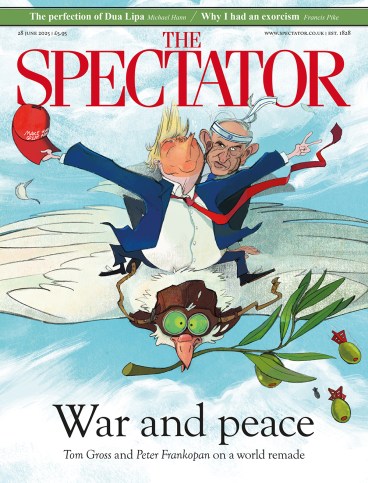
If, as is said, there are only seven basic narratives in human storytelling, then there should be an addendum. In rock and pop there is only one: the dizzying rise, the imperial period, the fall from grace (either commercial or ethical, sometimes both), and the noble return (historically prefigured with a glossy music mag cover proclaiming: ‘Booze! Fights! Madness! How Rubbish Band went to hell – and came back’).
All three were on view in London this past fortnight. Waxahatchee was the one on the way up: this was, Katie Crutchfield announced proudly from the stage, the ensemble’s biggest-ever show. Dua Lipa was the one entering her imperial phase – her first Wembley headline, with a production to match. And Sparks were the comeback kings, 20 years into an extraordinary renaissance that now has them playing to more people than they ever did in the 1970s when they actually had hit singles.
Of the three, Sparks was the unadulterated triumph. Of course, 28 albums in, something would be amiss if they couldn’t fill a headline set, though they are unusual among real veteran bands in that their new albums keep attracting younger fans (their most recent one was on the cool label Transgressive, rather than some veterans’ clearing house), which also meant that the atmosphere on the first of two nights at the Apollo was more fervent and wild than commonly greets brothers pushing 80.
The fact that they have never stood still – their two best-known songs, ‘This Town Ain’t Big Enough For The Both Of Us’ and ‘The Number One Song in Heaven’, might as well be the work of entirely different groups – means they haven’t dated. Moreover, their more rococo 1970s notions are now being echoed by groups like the Last Dinner Party, so they have a new sense of currency. And gosh, did Ron and Russell Mael capitalise on it, with a perfectly paced and brilliantly designed show. I did not believe Russell would be able to sustain the operatic falsetto of ‘This Town Ain’t Big Enough For The Both Of Us’ – but I was entirely wrong. This was a group completely at ease with the vicissitudes of their musical career, and very happy to take the opportunity to show off their artistry once again.
Waxahatchee was the misfire. Of these three acts, hers is the music I like best: gloriously melodic Americana, of the kind that has filled college-radio airwaves since REM were nippers. And in a club I might have enjoyed the show just fine. But on the vast stage of the Apollo, Crutchfield and her band looked like children on their first day at school. There was only one bit of stagecraft: Crutchfield sitting on a stool stage right for a single song.
The result was that she barely projected beyond the first few rows. In the circle where I was, it felt like we were in a different postcode. But as pub bores should always be reminded, it is never all about the music. Had Elvis looked like Kenneth Clarke, he would never have been Elvis. Had Freddie Mercury had the personality of Richard Burgon, Queen would never have been Queen. Waxahatchee need to find a personality to fit these bigger rooms. It doesn’t have to be all pyro and banter, but right now the Apollo remains too big for Crutchfield and her band.
Dua Lipa’s was the most curious of the three: the highest highs, certainly, but also a slight sense of opportunity missed. With her second album, Future Nostalgia, Lipa found the personality that lifted her beyond the legions of very attractive young women singers who end up well known without anyone being quite sure why. The songs were rammed with hooks, but also there was a sense of a real person in there, rather than a pop automaton, especially in the way she eschewed pop’s usual endearments for the oddly delightful ‘my sugar boo’ in ‘Levitating’, or the playful rather than explicit sexuality of ‘Good In Bed’.
But as this tour is about promoting an album, Radical Optimism, many of the creases in that personality were ironed out. Lyrically it was less fun; musically it was less imaginative. She introduced ‘These Walls’ as one of her favourites – a song that sounds like it had been recorded specially for the drivetime show on Radio Lincolnshire, coming up right after news of a jacknifed lorry on the A52.
It was only when she went into the works from Future Nostalgia – ‘Levitating’, ‘Physical’, ‘Don’t Start Now’, ‘Hallucinate’ – that she really did seem like the perfect pop star: beautiful, alive, sparkling. Those songs sounded like someone swinging for the fences; the newer ones sounded like someone content to bunt for first base.

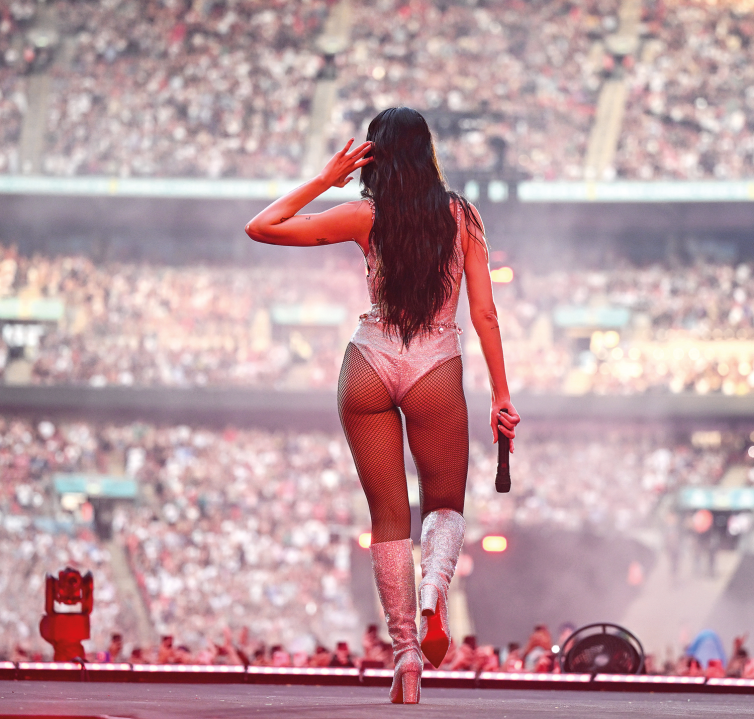
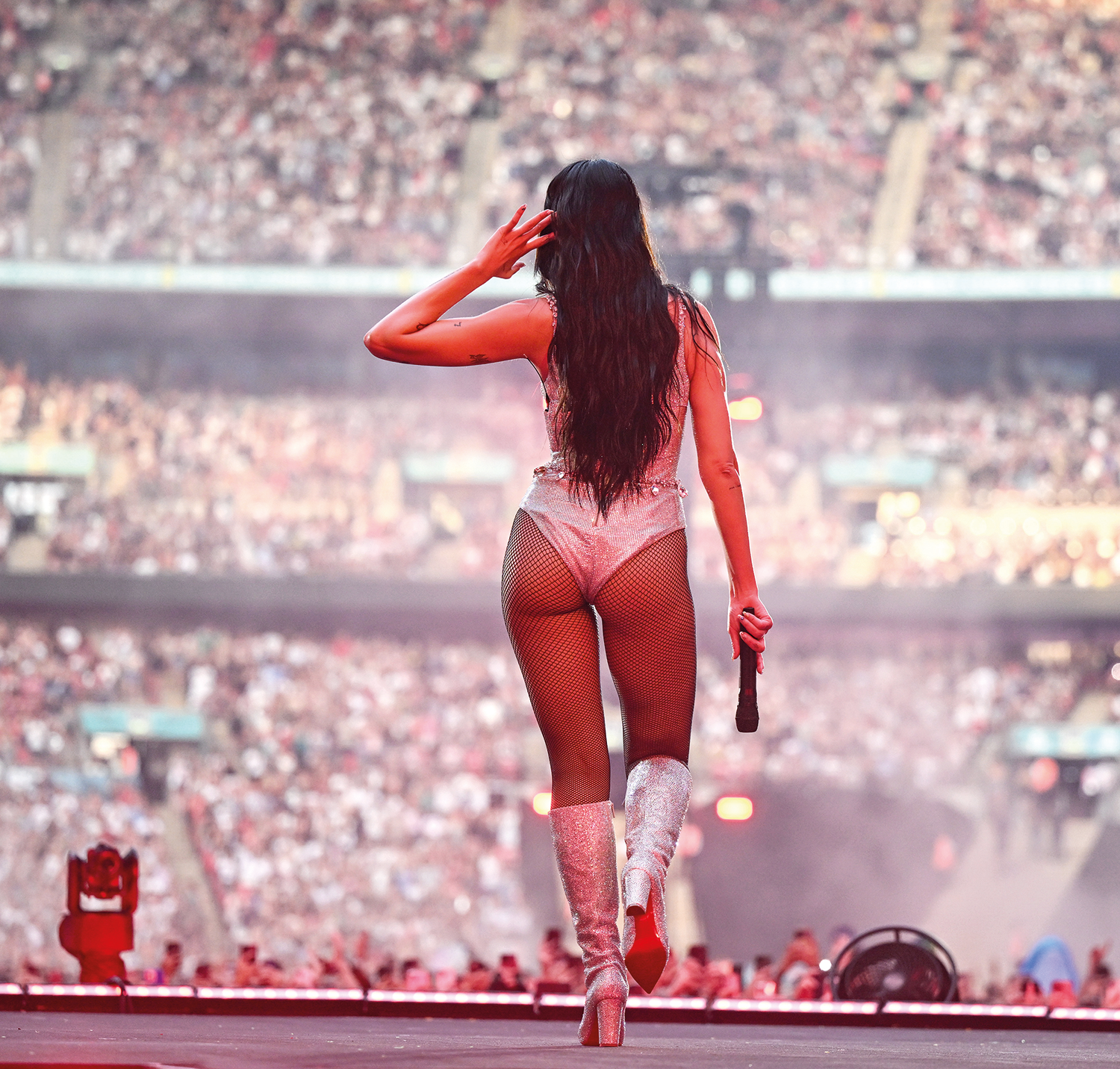
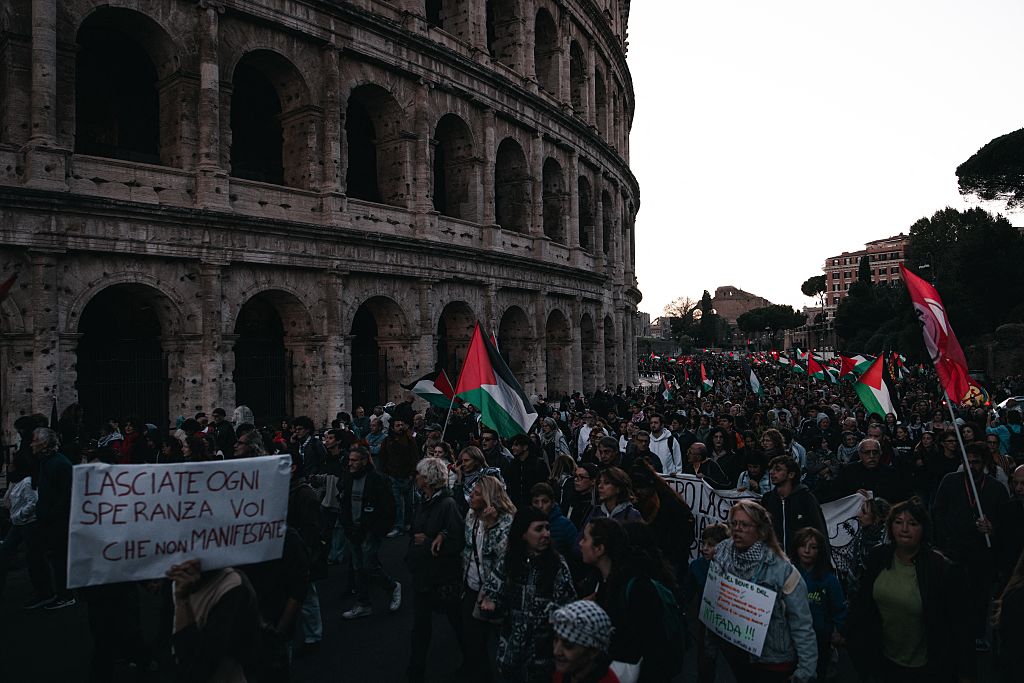
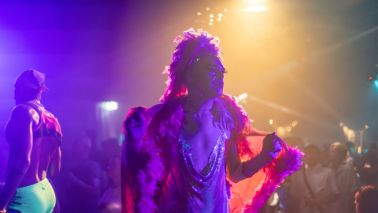



Comments